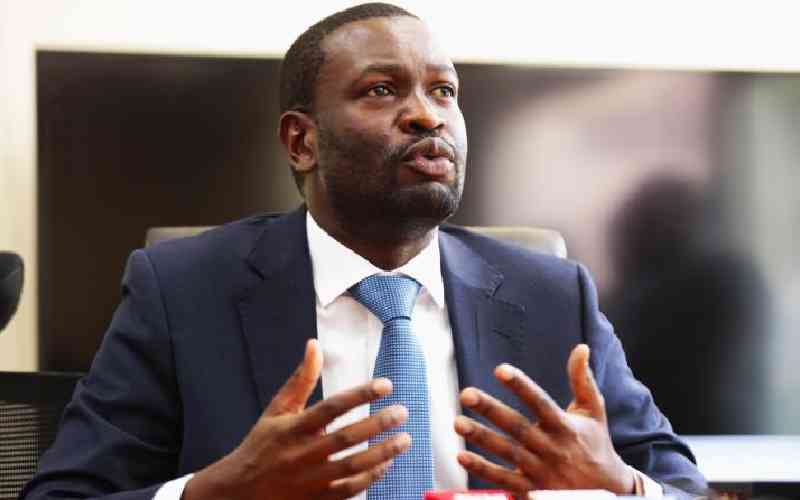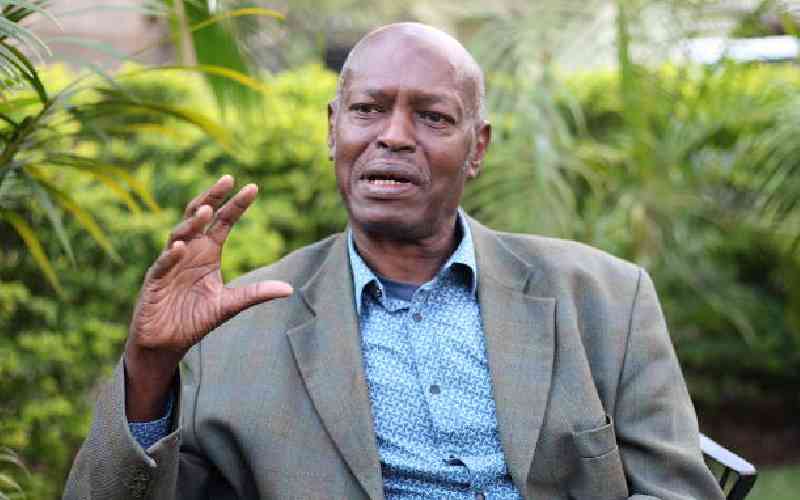By Dominic Odipo
The future of money transfer is here. So runs the latest prime time TV advert "introducing Orange Money". To the casual Kenyan TV viewer, this sounds just like another fancy advertisement pushing just another new product from a local firm or consortium.
But to those more informed about the cutting edge and the next level of both modern banking and computing, this advert could herald the future not only of money transfer in Kenya, but of the economy as a whole. It could revolutionise the way ordinary Kenyans allocate their income between consumption and saving and ultimately inject billions of more shillings for investment into the economy.
The substance of the Orange Money to which that advert refers is at once simple, profound and comparatively revolutionary. Basically, Orange, the local mobile telecom services provider, has teamed up with Equity Bank, East Africa’s largest bank by customer base — currently hosting over 5.7 million accounts — to expand and deepen financial access for ordinary Kenyans.
Capture them all
Combining the basic features of mobile money transfer and mobile banking, the new product will thus be moving into mobile services territory still largely uncharted, not just here, but in the rest of the world.
To understand the real value and significance of Orange Money, just a word or two about the future of both mobile banking and mobile money transfer. The new buzz word in both these sectors is what is now known by the insiders as "cloud computing." Cloud computing, which for these purposes can loosely be defined as "the provision of applications and infrastructure on a commodity basis in a model akin to how customers purchase services from utilities", is expected to come with huge cost savings, and therefore higher gross profits, for both banks and mobile service providers and is now the new wave of the future.
At a recent international forum on cloud computing, Mr Michael Harte, the head of information services at Australia’s giant Commonwealth Bank, said:
"Banks are suffering from lousy returns on equity so we need to review operating costs, such as information technology (IT) infrastructure, which accounts for about 15 per cent of these costs. At the same time, customers are demanding richer, online and real time experiences. So IT has to be managed for value — we have to get out of infrastructure and deliver on value. The opportunity for cloud computing is that you free up infrastructure costs."
Richer, online and real time experiences. Those have become the new buzz words at the cutting edge of both mobile banking and mobile money transfer and Orange Money seems to have captured all of them. Kenyans of all walks of life now need banking services that are at once richer, online and delivered in real time. It is no longer sufficient merely to be able to transfer money from one’s mobile phone as the M-Pesa service does. Customers are now getting more keen on where they can transfer their money to, when, for what purpose and how little or how much of it they can transfer in a single transaction.
There are three characteristics of Orange Money, which make it potentially revolutionary when considered in the context of the Kenyan banking and IT sectors, and of the national economy as a whole. The first is that one can transfer money from the mobile phone to a bank account directly and immediately or, as we now say, in real time.
That means that that shoe shiner in Kwale or Busia who has just received Sh100 can immediately save half of his earnings by transferring Sh50 to his bank account immediately. If only one million mobile phone subscribers transfer only Sh50 each to their bank accounts in this way, an additional Sh50 million is immediately injected into the banking system for those who wish to borrow and invest it.
Such a facility could, in only a few years, change this country from a consumption to a savings culture, with all the long-term benefits that could come with such a change.
The second characteristic is that, because this Orange Money is directly linked to a bank account, there are no limits to the amount one can save, even though one-time transactions will initially be limited to Sh100,000.
And since such deposits are protected under the Banking Act, the risks are minimised while the deposits still earn market interest rates.
Stay informed. Subscribe to our newsletter
pay school fees
The third property which separates this facility from, say, M-Pesa is that you can use your phone to effect any transfers from your bank account. You can pay school fees or any other bills which would ordinarily require a trip to the bank, from your sitting room or wherever you happen to be.
On a recent posting on Facebook, Mark Zuckerberg, its founder and Time magazine’s Man of The Year, 2010, wrote of "how our little team is building something that hundreds of millions of people want to use to make the world more open and connected".
Open and connected. Those are some of the key words that are going to drive the national economies of the new century. And that, it appears, is the route Orange Money is taking. The future is indeed here ,but apparently only for those who can recognise it!
The writer is a lecturer and consultant in Nairobi. The opinions expressed here are not necessarily those of The Standard.
[email protected]
 The Standard Group Plc is a
multi-media organization with investments in media platforms spanning newspaper
print operations, television, radio broadcasting, digital and online services. The
Standard Group is recognized as a leading multi-media house in Kenya with a key
influence in matters of national and international interest.
The Standard Group Plc is a
multi-media organization with investments in media platforms spanning newspaper
print operations, television, radio broadcasting, digital and online services. The
Standard Group is recognized as a leading multi-media house in Kenya with a key
influence in matters of national and international interest.
 The Standard Group Plc is a
multi-media organization with investments in media platforms spanning newspaper
print operations, television, radio broadcasting, digital and online services. The
Standard Group is recognized as a leading multi-media house in Kenya with a key
influence in matters of national and international interest.
The Standard Group Plc is a
multi-media organization with investments in media platforms spanning newspaper
print operations, television, radio broadcasting, digital and online services. The
Standard Group is recognized as a leading multi-media house in Kenya with a key
influence in matters of national and international interest.





